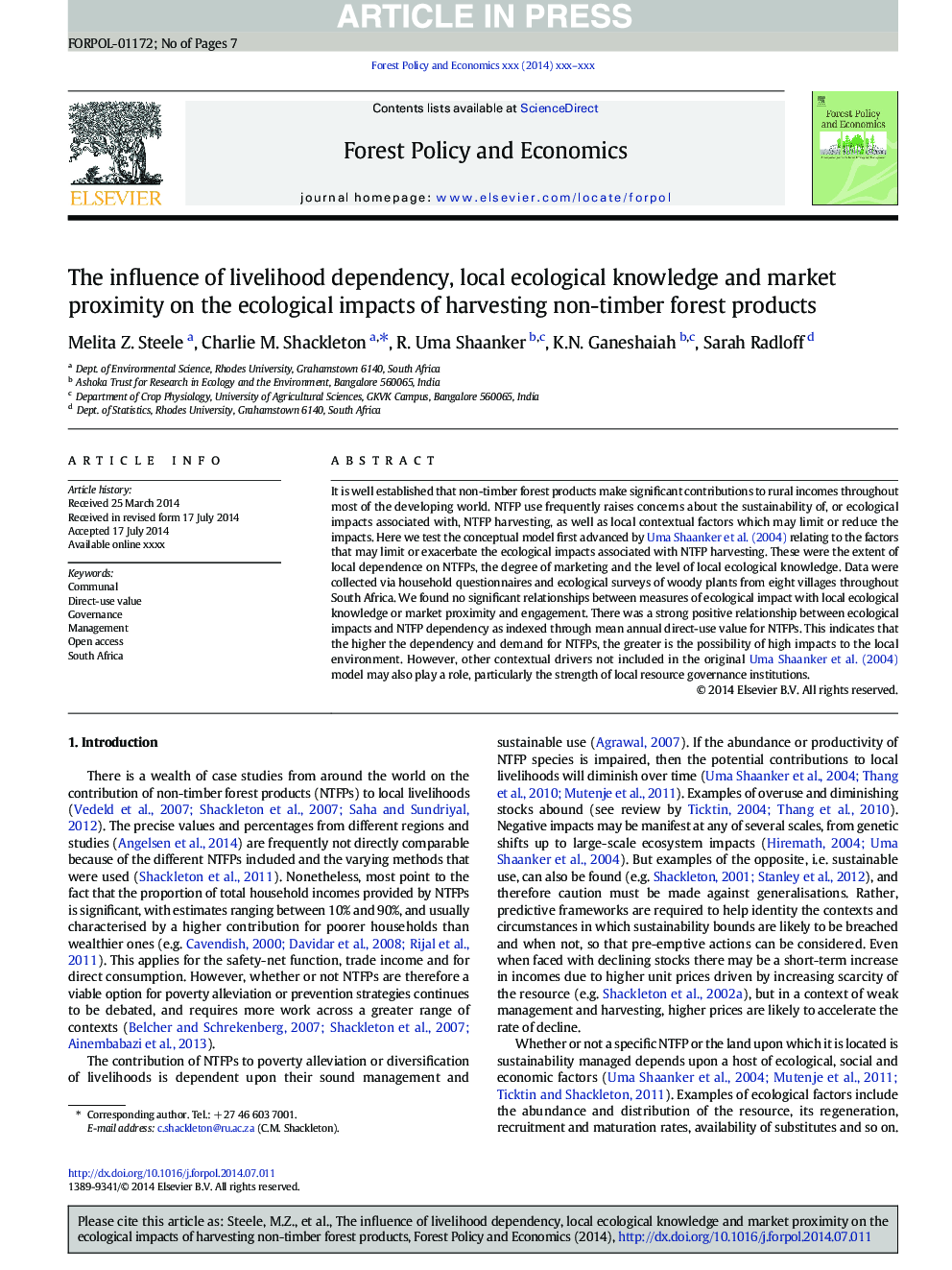| Article ID | Journal | Published Year | Pages | File Type |
|---|---|---|---|---|
| 6544953 | Forest Policy and Economics | 2015 | 7 Pages |
Abstract
It is well established that non-timber forest products make significant contributions to rural incomes throughout most of the developing world. NTFP use frequently raises concerns about the sustainability of, or ecological impacts associated with, NTFP harvesting, as well as local contextual factors which may limit or reduce the impacts. Here we test the conceptual model first advanced by Uma Shaanker et al. (2004) relating to the factors that may limit or exacerbate the ecological impacts associated with NTFP harvesting. These were the extent of local dependence on NTFPs, the degree of marketing and the level of local ecological knowledge. Data were collected via household questionnaires and ecological surveys of woody plants from eight villages throughout South Africa. We found no significant relationships between measures of ecological impact with local ecological knowledge or market proximity and engagement. There was a strong positive relationship between ecological impacts and NTFP dependency as indexed through mean annual direct-use value for NTFPs. This indicates that the higher the dependency and demand for NTFPs, the greater is the possibility of high impacts to the local environment. However, other contextual drivers not included in the original Uma Shaanker et al. (2004) model may also play a role, particularly the strength of local resource governance institutions.
Related Topics
Life Sciences
Agricultural and Biological Sciences
Forestry
Authors
Melita Z. Steele, Charlie M. Shackleton, R. Uma Shaanker, K.N. Ganeshaiah, Sarah Radloff,
